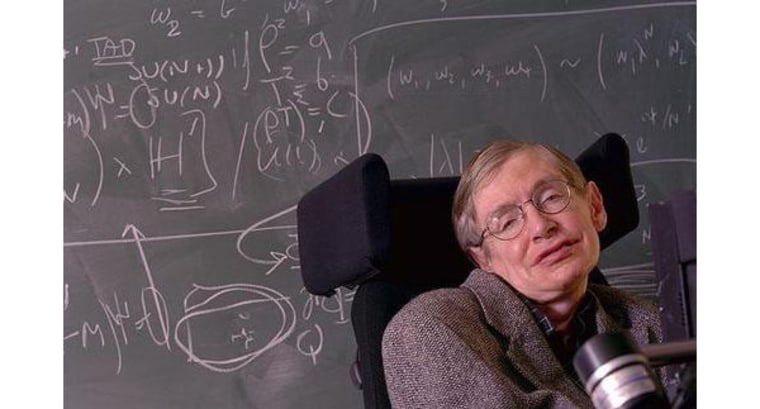Stephen Hawking was given a few years to live when he was 21. He turned 70 yesterday.
Until just a few years ago, Hawking was the Lucasian Professor of Mathematics in the Department of Applied Mathematics and Theoretical Physics (DAMTP) at the University of Cambridge. A most prestigious positions previously held by Isaac Newton, Charles Babbage, and Paul Dirac.
I crossed paths with Hawking several times during my studies in England. The University of Cambridge is a funny place for those of us that study the Universe. It has three separate departments: astrophysics and cosmology at DAMTP, the Institute of Astronomy, and the astrophysics group in the Department of Physics's Cavendish Laboratory (where I was). Despite the divisions between these groups, bureaucratic and geographic, there is interaction. Specifically as a graduate student, I frequently attended seminars and colloquia in all three departments.
In my first year, my fellow students and I used to attend "Cosmology Lunch" at DAMPT, a brown bag lunch series to discuss current research being done in the field. To my utter surprise, at more than one lunch, the side door opened and Stephen Hawking was wheeled in by one of his graduate students. In fact, the first time this happened, I was sitting next to said door with a friend of mine who had put his wallet down on the table next to him. When Hawking's grad student had situated him properly, he pulled the table over to use for Hawking's lunch and my friend immediately whispered to me that Stephen Hawking just stole his wallet. As you can imagine, this became one of my favorite anecdotes from my time in Cambridge.
In contrast to this amusing episode is the seminar I attended at DAMPT where Hawking first announced that he was conceding his bet with Kip Thorne and John Preskill on the black hole information paradox. Hawking and Thorne argued that once an object was accreted onto a black hole, general relatively prevented any information about the object from being regained, i.e., you couldn't "back out" what went into a black hole by studying the radiation given off by the black hole. Preskill argued the opposite, i.e., that quantum mechanics guaranteed that you could. The loser of the bet had to buy the winner the encyclopedia of his choice, from which information could be obtained at will.
Hawking officially conceded the bet publicly at the 17th International Conference on General Relativity and Gravitation, on July 21, 2004 in Dublin. However, prior to that, he announced his intention to concede the bet to the Cambridge community at a Friday General Relativity Seminar at DAMTP. The small room was packed and I will never forget the first time I got to see Hawking "speak." He did not work from a prepared text, rather composed his words on the spot to go with the slides he was presenting. As you can imagine, each thought took quite a while to compose. The seminar room was hushed between slides, anxiously waiting for his next sentence. What I remember most was his response to a two-part question towards the very end of the seminar. The audience member sat down after posing his questions and we all sat watching Hawking as he thought them over. After at least five minutes his answer finally came: "yes, and no."
For more on Hawking's current thoughts on the Universe, you can read or listen to him answering questions from the public here.
And to celebrate, I suggest you watch two of the best videos on Hawking and his research. The first is the wonderfully made, "A Brief History of Time," an 80 min. documentary on Hawking from 1991. I can still recall watching it for the first time in middle school. It was an important mile marker on my road to studying the Universe. The second is an epic rap battle between Einstein and Hawking. You heard me: epic rap battle. Happy Birthday, MC Hawking.
